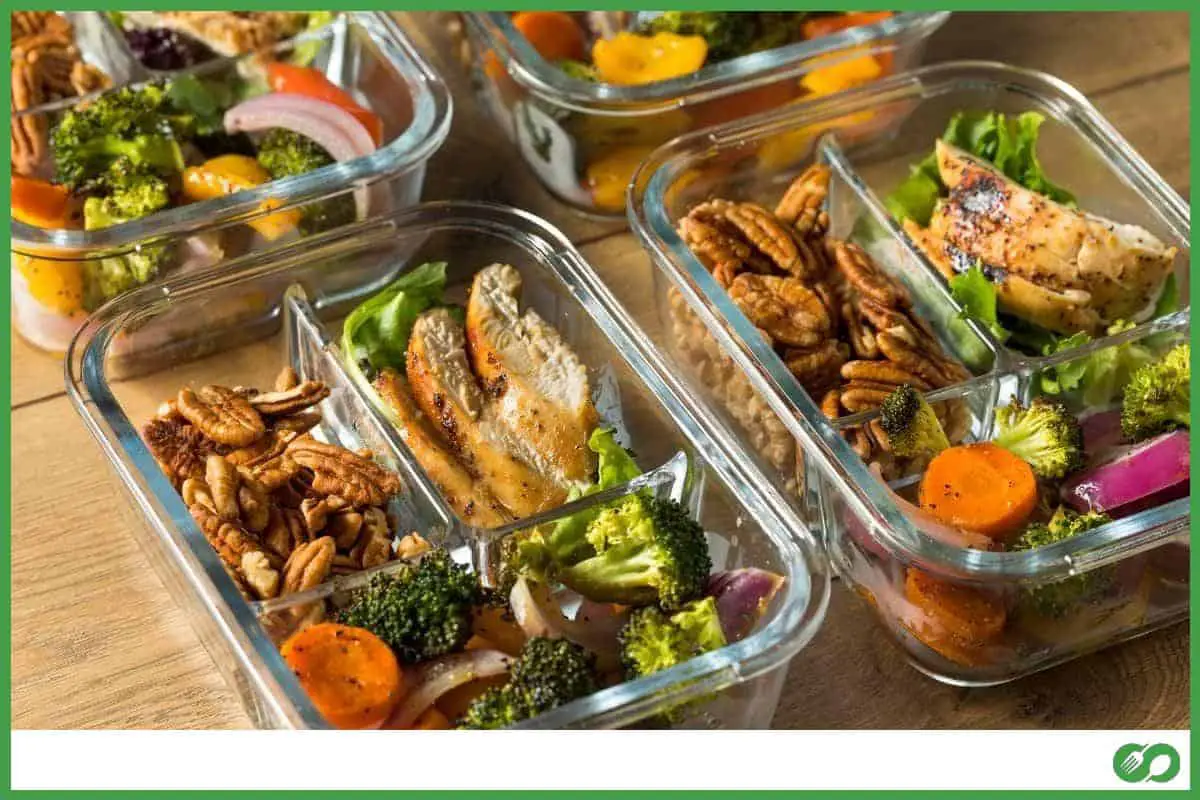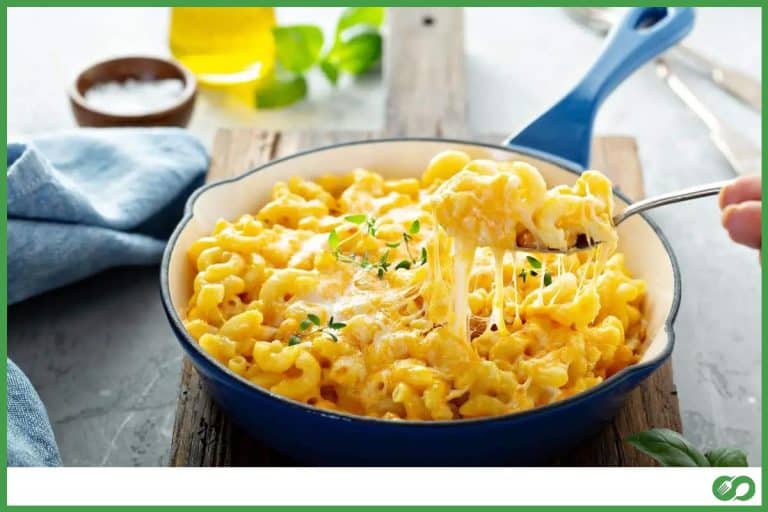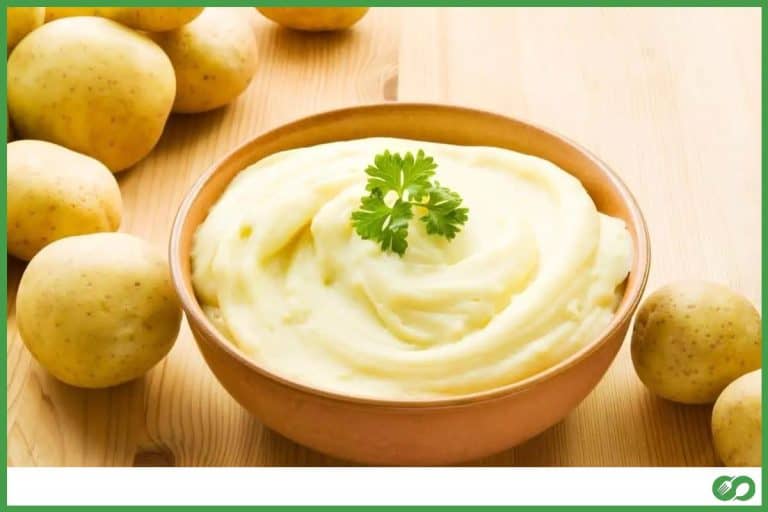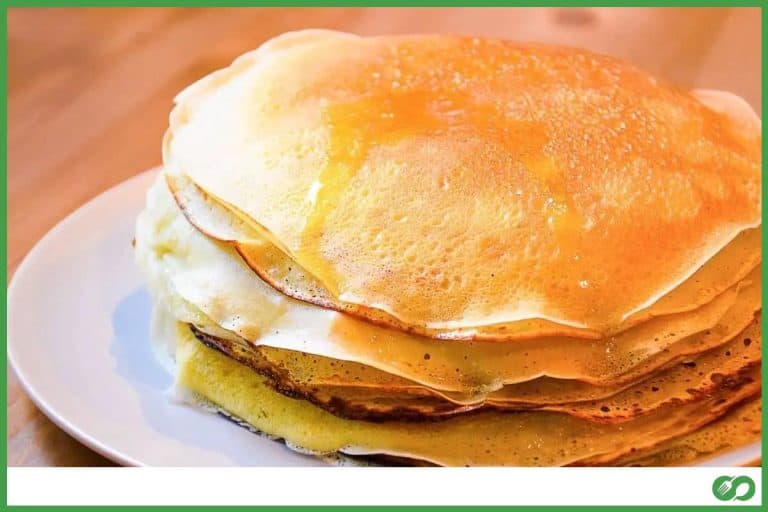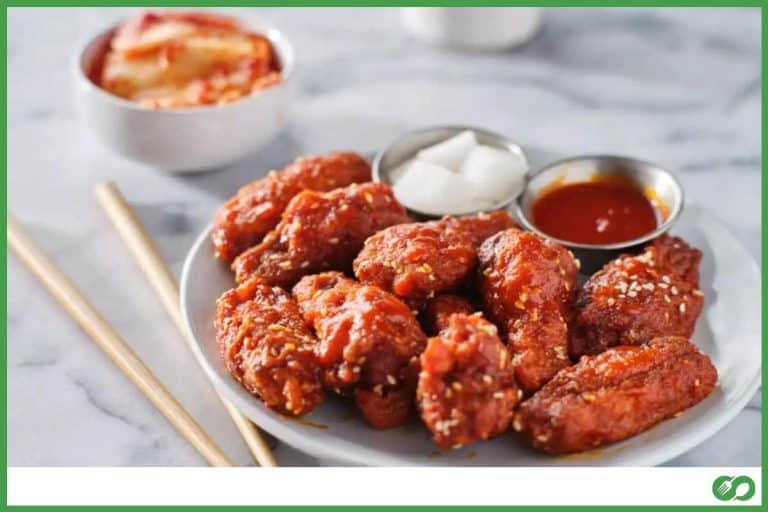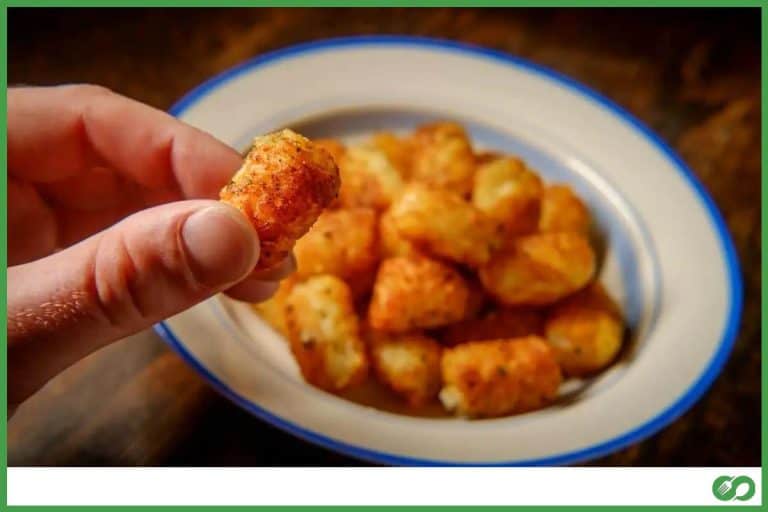How To Meal Prep Without Food Going Bad (9 Tips)
This post may contain affiliate links which means that, if you choose to make a purchase, I may earn a small commission at no extra cost to you.
People are so busy these days that they do not always have time to prepare fresh meals on a daily basis. Hence, preparing meals ahead of time is the new trend. If you are planning to jump on the bandwagon and are wondering how to meal prep without food going bad, you’ve come to the right place!
The meals must be cooked at the proper temperature and cooled down properly before being stored in the refrigerator. Also, make sure to store the food in clean containers all the time. Meals usually last up to five days in the refrigerator.
I’ll share some meal prep ideas and tips in this article so that your food stays fresh and doesn’t go bad too quickly. If you’ve never done meal planning before, you might be curious about what it entails and why you should do it in the first place. So let’s get into it!
What Is Meal Prep And Why Should You Do It?
Meal prep has different meanings. In short, it is preparing healthy meals by combining different nutritious ingredients according to a meal plan and storing them in the refrigerator. People usually prepare and refrigerate single-serve meals according to their tastes and needs.
So, why are people getting into meal prepping? The most obvious reason is to save time when preparing meals on a daily basis. For example, in my spare time, I cook single or multiple meals and store them in the fridge for the next three to five days. Before eating, all I have to do is take the food out of the fridge and warm it up.
Besides, meal prep allows you to control what goes into your meal. You can create a healthy proportion of ingredients to keep on track with your health goals. Instead of eating unhealthy snacks like pizza or burgers, you can have pre-made healthy snacks at any time from your fridge.
Meal prep is beneficial for athletes, bodybuilders, fitness models, and people who follow a healthy diet. When they prepare their own meals, they can control food portions. They know exactly what ingredients and how many calories they are putting into their bodies. Thus, it becomes easier to keep track of daily calorie intake.
9 Tips On Meal Prep To Make Sure Food Do Not Get Bad
Imagine this: you have spent a lot of time on meal prep and have made a few batches of healthy food for the next five days. But two days later, you find out the food has spoiled, even if you had stored it in airtight containers. So, what is the right way to meal prep, making sure the food does not get bad.
Here is how I meal prep to keep my food as fresh as possible:
1. Choose Ingredients That Last In Fridge
You should know that not all foods are great for storing in the fridge for three to seven days. Therefore, you must choose the right ingredients for your week’s meal prep. For example, baby carrots, any fruit with peels, cooked broccoli, and cauliflower will last for a week or more.
Other foods ideal for meal prep are eggs, pulses, brown rice, quinoa, oatmeal, cooked meat, roasted vegetables, sauces, soups, and nuts.
On the other hand, sliced raw potatoes will go bad in just two days. But whole boiled potatoes will last for five to seven days in the fridge. However, raspberries and cut strawberries are not ideal for storing. Other foods that are bad for meal preps are avocados, dressed salads, yogurt, shrimp, and chopped tomatoes.
2. Schedule Time For Meal Prep
To prepare your food, you should stick to a schedule. Cooking a week’s worth of food in one day is not a good idea. As you can see, many foods last just three to four days. That’s why I only prepare meals on Sundays and Wednesdays. You can decide on your own meal prep day according to your schedule.
Meal prepping on two separate days also allows me to prepare different meals for the week. Typically, I prepare meals with long-lasting foods, like vegetables on Sundays, and meat recipes on Wednesdays.
3. Calculate How Many Meals You Need
If you do not want to waste your food by the end of the week, you should calculate the number of meals you need. Consider how many breakfasts, lunches, dinners, and snacks you will need to prepare. If you are meal prepping for a whole week, you may need to prepare over 20 meals. Cooking that amount of food in one day can be a bit overwhelming. To make things easier, you can cook large batches of meat and vegetables and later use them in different ways to prepare meals.
4. Cook Food in Right Temperature
Cooked meat or fish can go bad in the refrigerator if they are not cooked at the right temperature. You must cook fish, meat, or any other meal following their appropriate internal temperature.
For example, the internal temperature for cooking beef and poultry is 165 degrees F. For pork and mutton, it is 145 degrees F. Food cooked below this temperature turns bad soon because of bacterial growth and causes digestive problems. So, use a thermometer to make sure the food reaches the right temperature.
5. Slightly Cool Down Meals Before Storing In The Fridge
Allow your meals to cool down a bit before putting them in the fridge to keep them fresh for longer. If you put hot food in the fridge, the steam will build up in the containers, and turn your food soggy and mushy.
I let my food cool down for 20 to 30 minutes before closing the lids of the containers. But make sure you do not keep the food at room temperature for too long. It may get affected by bacteria.
6. Store Your Food Properly In Clean Airtight Containers
Before preparing the meal, wash your hands properly. The cooking area, cooking utensils, and containers must be clean and sanitized. Your food should not come into contact with bacteria in any way. Getting affected during meal prep time will cause your food to spoil too soon.
Also, use airtight containers to store your food in the fridge. You can use zip-lock bags for storing vegetables and fruits. Airtight bags and containers will keep your food fresh.
Buy different sizes of airtight containers to store your foods according to your needs. If you use plastic containers, you have to reheat the food on separate plates. You can use glass containers to reheat directly in the microwave.
7. Store and Label The Food Correctly
Keep your food organized in the fridge. Do not overfill your fridge with too many containers because the air may not circulate properly. As a result, bacteria will grow fast, and your food will spoil. This is why I meal prep two days a week. You should also use the appropriate container size for your meals.
Add labels on the container mentioning the food type and estimated expiration date. This way, you can keep track of which food to finish first and which food will last longer.
8. Check The Fridge Temperature
Your food must be preserved at the right temperature. The temperature of the refrigerator must stay below 40 degrees F.
If the refrigerator temperature reaches between 40 degrees F and 140 degrees F, bacteria will spoil the food. Hence, the foods become discolored, soggy, and unsafe for eating. Therefore, you must always check the temperature of the fridge before storing the food.
9. Add Variety In Meals
Sometimes, your meals go bad if they stay in the fridge for too long. One of the reasons meals stay untouched is because you may get bored of eating the same food for weeks. Therefore, it is very important to have variations in your meal prep.
Your food should have a balance of various nutrients necessary for your body. Keep a healthy balance of protein, fat, vitamins, carbohydrates, and minerals in the meal plan. But do not just keep chicken for protein. Add another item like salmon or steak.
Do the same for vegetables and fruits. On some days, you can have baby carrots, and on other days, broccoli, peas, or cauliflower. Have some variety in your snacks as well.

